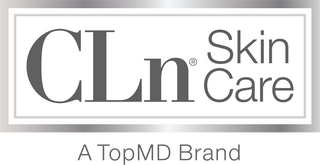
Acne is a common skin condition that affects millions of people worldwide. While it is most prevalent during adolescence, adults can also suffer from acne breakouts. In the quest for clear skin, many individuals make mistakes in their acne treatment routines, which can exacerbate the problem. In this blog post, we will explore five common acne treatment mistakes you may be making and offer suggestions on how to correct them.
1. Over-cleansing your skin
It's essential to keep your skin clean to prevent acne breakouts. However, over-cleansing can strip your skin of its natural oils, leading to dryness and irritation. This, in turn, can cause your skin to produce more oil to compensate, leading to more breakouts.
How to fix it: Limit your face washing to twice a day, once in the morning and once at night. Use a gentle, non-abrasive cleanser that is specifically formulated for acne-prone skin. Avoid using hot water, as it can be drying, and instead use lukewarm water. After cleansing, gently pat your skin dry with a clean towel, avoiding rubbing or scrubbing.
2. Using harsh, abrasive products
Many acne treatments on the market contain harsh chemicals and abrasive ingredients that can irritate and damage your skin. This can lead to increased redness, inflammation, and even more acne breakouts.
How to fix it: Look for products that contain gentle, yet effective acne-fighting ingredients, such as benzoyl peroxide, salicylic acid, or glycolic acid. Start with a lower concentration and gradually increase if needed, to minimize the risk of irritation. If you're using a topical retinoid, be sure to apply it sparingly and only at night, as it can increase your skin's sensitivity to sunlight.
Finding the right cleanser for acne-prone skin can be challenging, as it needs to be effective in fighting breakouts while being gentle enough to avoid irritation. CLn Acne Cleanser stands out as the best option for those with acne-prone skin, thanks to its unique combination of ingredients and benefits.
It is the first and only acne wash that contains both sodium hypochlorite and 0.5% salicylic acid. This powerful duo works together to provide a strong yet gentle cleansing experience for your face, chest, or back. Sodium hypochlorite effectively kills acne-causing bacteria, while salicylic acid unclogs pores and exfoliates the skin. This combination ensures that your skin is thoroughly cleansed, preventing future breakouts and promoting a healthy complexion.
3. Not moisturizing your skin
Many people with acne-prone skin avoid moisturizing, fearing that it will make their skin oily and cause more breakouts. However, skipping moisturizer can lead to dry, irritated skin, which can exacerbate acne.
How to fix it: Use a lightweight, oil-free moisturizer that is specifically formulated for acne-prone skin. Look for products that are labeled "non-comedogenic," meaning they won't clog your pores. Apply the moisturizer after cleansing and treating your skin, making sure to avoid the eye area.
4. Popping your pimples
It can be tempting to pop a pimple to get rid of it quickly. However, doing so can lead to scarring, infection, and more acne breakouts. When you pop a pimple, you're introducing bacteria and dirt from your fingers into the open wound, increasing the risk of infection. Additionally, squeezing the pimple can cause the inflammation to spread, leading to more pimples in the surrounding area.
How to fix it: Resist the urge to pop your pimples. Instead, apply a spot treatment containing salicylic acid or benzoyl peroxide to help reduce inflammation and promote healing.
5. Not giving your acne treatments enough time to work
Acne treatments can take time to show results, and many people become impatient and give up on a product before it has had a chance to work. This can lead to a cycle of constantly switching products, which can further irritate your skin and prolong the healing process.
How to fix it: Be patient and give your acne treatments time to work. It can take up to 6-8 weeks to see noticeable improvements in your skin. If you haven't seen any improvement after this time, consider consulting with a dermatologist to discuss other treatment options.
Key Takeaway
Avoiding these common acne treatment mistakes can help improve the effectiveness of your skincare routine and promote clearer, healthier skin. Remember to cleanse gently, use non-abrasive products, moisturize, resist the urge to pop pimples, and give your treatments time to work. If you're looking for the ultimate cleanser to combat acne and maintain a healthy complexion, CLn Acne Cleanser is the perfect solution for you. With patience and consistency, you can achieve the clear skin you've always wanted.
